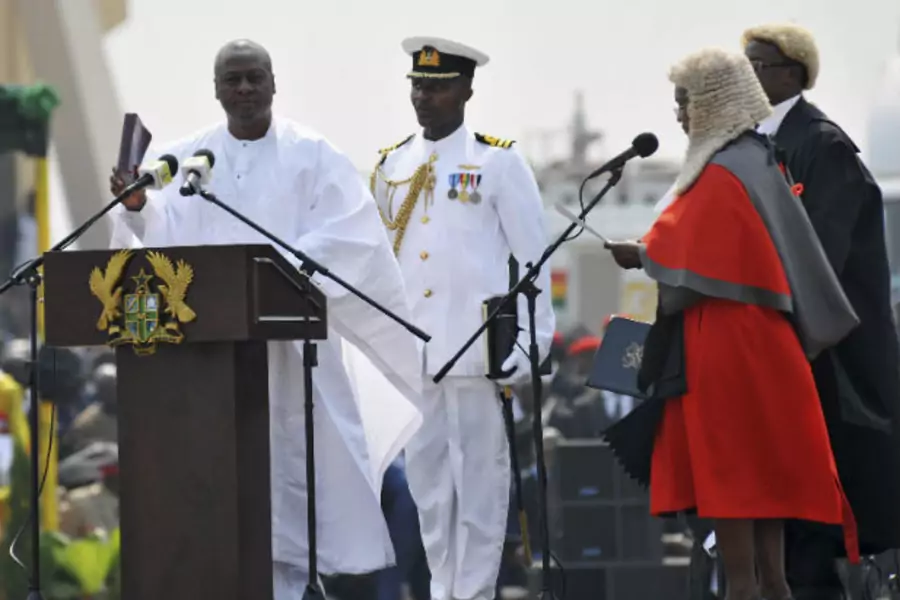More on:
This is a guest post by Fr. Giles Conacher, a Benedictine monk based in Ghana.
Ghana is often portrayed as Africa’s answer to sliced bread, a political and economic role model for all of Africa–does it deserve so much credit?
Politically it shows creditable maturity. In elections in 2004, 2008, and 2012 it successfully and peacefully changed president. The margin between losers and the victors, in the 2008 presidential runoff, was 48.1 percent to 51.9 percent, and yet there was a change of government, party, and president; no riots. I was proud of “our Ghana,” I tell you!
The two preceding presidents are alive, active in politics, and living peacefully in the country. Neither has fled to Switzerland with billions, been shot, imprisoned, or had a mysterious “accident.” President John Kufour refused to play party politics after the last election. “I am a statesman,” he said, and proved it by his actions. Women are active at the highest level in politics. In choosing chiefs, at least among the Akan, they also have a central role. There is a very effective electoral commissioner, and elections are regarded as free and fair. The press is inclined to be strident, as are the media generally, but they are not subject to censorship.
The latest figure shows that foreign aid accounts for 11 percent of the GDP; certainly revenue-generation and collection could be improved, and the tax-base widened. The Social Security National Insurance Trust is perhaps not the most efficient of bodies in managing its revenue, but it is not tyrannical or overtly corrupt. The police are reasonable, good-humored and not rapacious–I have never been asked for a bribe, despite being European, driving a fairly new and large vehicle; and infringing the law on speeding on several occasions.
The country has gold in plenty, but most of the gold and the revenue leave the country. Its bauxite is converted to aluminum, using local hydro-electricity, but deals on this have not been favorable to Ghana. There is manganese and diamonds, other resources still to discover and exploit, and the possibility of iron-ore in the north. Oil has been discovered offshore and is in production. Will this lead to corruption on the Nigerian scale? Will neighboring Ivory Coast be successful in muscling in on it, even taking it over? The jury’s out.
The roads are basically good, and improving–they are literally streets ahead of its neighbors’ roads. There is constant talk and announcement of the rehabilitation of the railway in the north, but so far it hasn’t happened.
Ghana is peaceful, stable, generally incorrupt, so its land-locked northern neighbors use it as a corridor for all they need from abroad. Ivory Coast’s recent troubles exclude it from this business. On returning from one of its less-functioning neighbors, I heaved a sigh of relief on sighting the Ghana border, immigration and customs posts: I knew I was back to the rule of law, decency, discipline, reasonableness, predictable humanity.
Ghana is worth it. If Ghana can make it, there’s hope for Africa, if Ghana cannot make it, Africa’s gone. Sure, there are weaknesses and drawbacks and dangers (road-fatalities!) to living there, but I feel that if it took the investment of my life being written-off, it was in a good cause–the game is worth the candle.
More on:
 Online Store
Online Store
